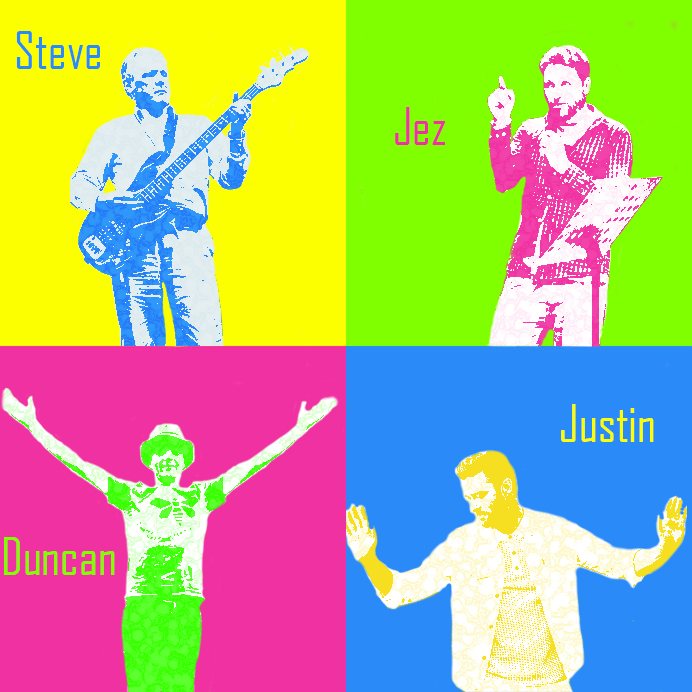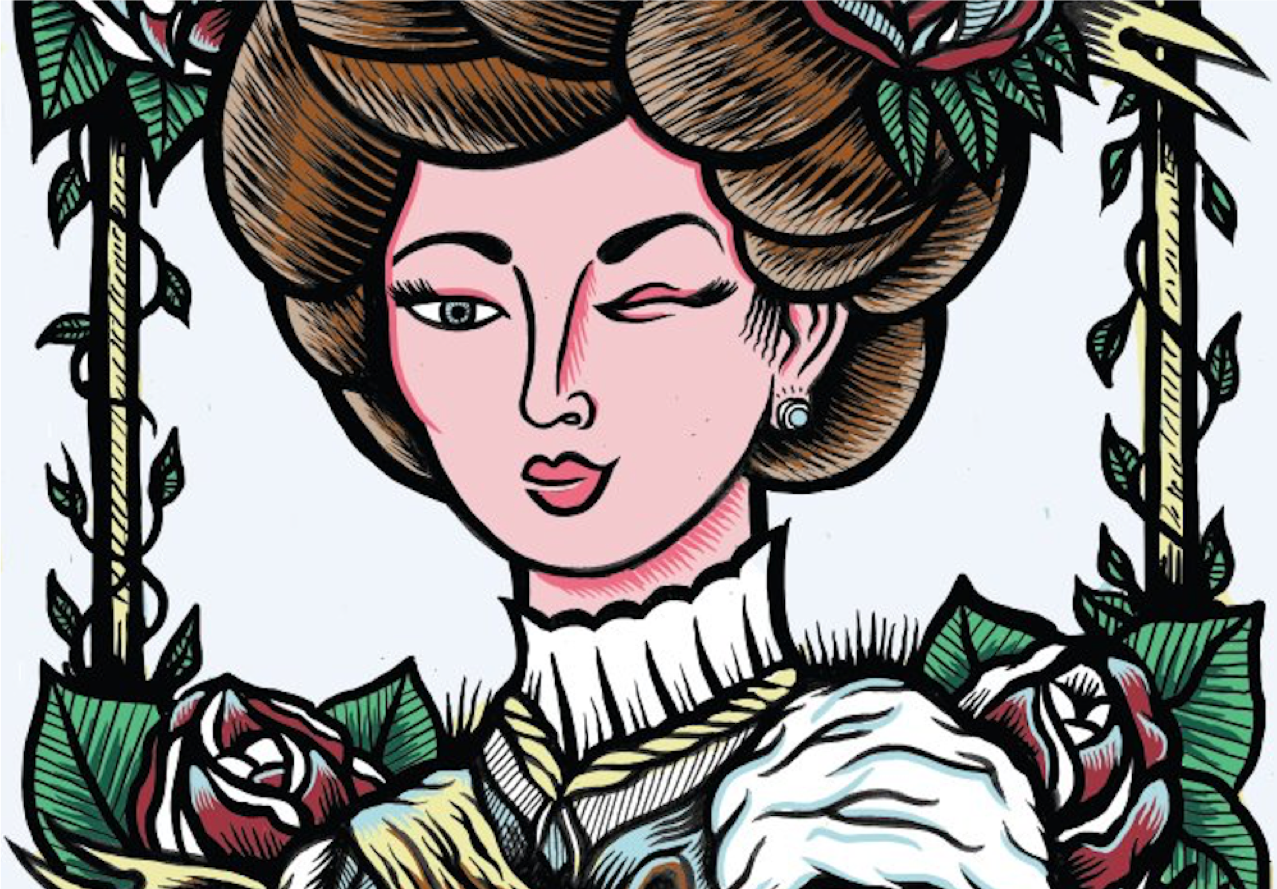7 Researching the Future
My research interests are in Computer Science Education and pedagogy. (Fincher and Robins 2019; Biggs and Tang 2011; Fry, Ketteridge, and Marshall 2014) I’m interested in methods that can improve learning and student experience using techniques like coding your future, journal clubbing, industrial mentoring, live music, working with schools, editing Wikipedia and more. Previously I’ve worked in bioinformatics, knowledge representation and reasoning and symbolic AI, see publications in section 7.6.

Figure 7.1: Too many educational practices are not backed up by good evidence that they actually work. More evidence is needed to support many of the claims made about effective pedagogy. Wikipedian Protester cartoon by Randall Munroe at xkcd.com/285 published under a Creative Commons Attribution-NonCommercial 2.5 License
7.1 SIGCSE
Computer Science has only been taught to undergraduates in the UK for 50 short years (Brackenbury 2005; Hawthorne et al. 2019), so there’s lots of open questions about how to teach the practical, theoretical and professional aspects of the subject. To that end:
- I’m an active member of the Association for Computing Machinery (ACM) and it’s Special Interest Group (SIG) in Computer Science Education (sigcse.org). In 2020 I founded the ACM SIGCSE journal club and chair the monthly Manchester meetup. Anyone is welcome to join, see sigcse.cs.manchester.ac.uk/join-us
- I serve on the program committee of the United Kingdom and Ireland Computing Education Research (UIKICER) conference, on the board of UK ACM SIGCSE and have served on the program committee for Computing Education & Practice (CEP) conference at Durham University
7.2 Industrial Mentoring
Since we started the industrial mentoring scheme for software engineers in 2015, more than 1000 students have been through the mentoring scheme with 250 students taking the course every year. We are very grateful for continued support from our industrial partners in making this happen.
Mentors meet with a group of six second year students for two one hour meetings and do some gentle code review of their gitlab repository, as they start to fix bugs and add features to a large open source software project. You don’t need to be an expert in the tools students are using (Java, Eclipse, Jenkins, Git, JUnit and Ant) it is more about the general process (and politics) of building and testing high quality software in large and distributed teams, than the specifics of the stendhalgame.org codebase we happen to be using. Mentors are typically software engineers, both junior and senior.
7.3 Coderdojo & Code Club
I’m a volunteer at coderdojo.com (Ward 2016). Coder dojos are local community engineering clubs for young people; with several other volunteers I help out at CoderDojo North West. We meet once a month to help young people broaden their digital and computational horizons.
Previously I lead an after school CodeClub as part of a global network of free coding clubs for 9–13 year olds. (Smith, Sutcliffe, and Sandvik 2014) As with coderdojo, the aim is to have fun using Scratch, (Resnick et al. 2009) python and other interesting technology we can get our hands on including Raspberry Pi, (Halfacree 2020) Micro:bits, (Sentance et al. 2017) LEGO® MINDSTORMS®, (Papert 1980; Klassner and Anderson 2003) Oculus Rift, Sonic Pi (Samuel Aaron, Blackwell, and Burnard 2016) and CodeBug etc.
7.4 Wikipedia
Wikipedia and wikidata.org (Vrandečić and Krötzsch 2014; Turki et al. 2019) are powerful tools for improving both digital skills and communication skills, regardless of your age or level of computer literacy, (Proffitt 2018; Reagle Jr. 2010; Littlejohn et al. 2019) particularly in the following areas:
-
Literacy generally, the ability to read and write in any natural language. The literacy skills of some engineers and scientists leaves plenty of room for improvement, but literacy has many overlapping dimensions including:
- Data literacy the ability to read and write (data)
- Digital literacy the ability to read and write (digitally)
- Computer literacy the ability to read and write (using a computer)
- Information literacy the ability to read and write (information)
- Scientific literacy the ability to read and write (science). How many people do you know who unashamedly proclaim their scientific or mathematical illiteracy? (Stacey 2009; Gowers 2016; Garner 2012)
As an experienced and long serving editor of Wikipedia since 2004, I organise and participate in Wikipedia training events which recruit new Wikipedia editors. Some recent examples include:
- 2025-02-12 Raising Representation CAHAE event, run in collaboration with the Department of Classics, Ancient History, Archaeology and Egyptology (CAHAE)
- 2024-11-07 Raising Representation of Women in Archaeology, run in collaboration with Hannah Cobb
- 2020-06-24 Wikipedia: Women, War and Peace run in collaboration with the Imperial War Museums’ War and Conflict Subject Specialist Network, with support from the Arts Council England and Art Fund.
- 2020-02-26 Wikimedia in Education UK Summit, Coventry University #wikiedu20
- 2019-11-22 Training of Trainers (ToT) workshop, University of Glasgow
- 2019-10-19 Learn to edit Wikipedia with Ada Lovelace, Sackville Street Building, University of Manchester (Mohammad-Qureshi and Hull 2019)
- 2019-10-12 Wikipedia Edit-a-Thon with Zebra Hub HQ, Pankhurst Centre, Manchester
- 2017-10-13 Physiology Friday, Hodgkin Huxley House, Farringdon, London (Hull 2017)
- 2015-09-02 First Wikipedia Science Conference #wikisci, Wellcome Collection, London, NW1 (Hull 2015; Hodson 2015)
More information on past and future events like this can be found at:
7.5 Tuning Complete
Tuning complete started as a boy band in Manchester, Lancashire 🌹, named after the famous Computer Scientist Alan Tuning. We use his eponymous Tuning machine to make music which is quality assured using the Tuning test.

Figure 7.2: The founder members of Tuning Complete were Jez Lloyd, Steve Furber, Justin Timberfake and yours truly. With apologies to Richard Avedon and his psychedelic portraits of John, Paul, Ringo and George. Artwork by Jez Lloyd.
Our founding members, shown in figure 7.2 include:
- Jez Lloyd: Bachelor of Music, DJ and backing vocals
-
Steve Furber: bass guitar.
- “All we’ve got is Steve’s guitar, three chords and the truth.” (Howard 1951; Dylan and Hewson 1988)
- Justin Timberfake: lead vocals, lead dancer (Timberlake, Martin, and Shellback 2016)
- Duncan Hull: MC,
- synth (MicroKORG)
- drum machine (Sonic Pi)
- embarrassing dad dancing (Facepalm 2015)
Theoretically, we are a Turing Complete band. (Turing 1937; Brailsford 2005) Artistically, this means that what we lack in youth, good looks, fame, fortune, fashion sense, fanbase and back catalogue we compensate for with:
🤓 Musical geekery (Fauvel, Flood, and Wilson 2006; Harkleroad 2006)
🤓 Mathematical geekery (Rosenthal 2005)
🤓 Computer geekery (Samuel Aaron, Blackwell, and Burnard 2016)
We played our debut gigs to packed theatres of over 200 second year & first year undergraduate computer science students in the autumn of 2019 and are currently planning future live events while writing a (hopefully) lucrative hit single, working title: #LivingTheDream. If you would like to book our services for your next event, hackathon, wedding, bar mitzvah etc, please contact our agent Mrs. Kilburn shown in Figure 7.3.

Figure 7.3: Mrs. Kilburn is our manager, booking agent and promoter. She is the power behind our boy band throne, so all bookings must be approved and scheduled by her office. Please do not approach band members directly with gig requests or offers of marriage, we are all answered for!
7.5.1 From boy band to Musical Collective
After several years of rehearsing, touring and time in the studio, we decided to invite women to join our boy band, because we soon realised they could do all the things we weren’t so good at such as:
- Singing
- Dancing
- Performing
- Looking good
- Reading and writing music
- Playing musical instruments
So, as of 2025, Tuning Complete are a musical collective with a fluid membership model, we’re always looking for new members to join our ensemble. Artists we have collaborated with include:
- Billie Fakish: guest vocalist (Eilish and O’Connell 2019)
- Olivia Fakerigo: guest vocalist (Rodrigo et al. 2021)
- Faky Perry: guest vocalist (Perry et al. 2013)
- Faker Swift: guest vocalist (Swift 2019)
- Aretha Fakelin: guest vocalist (Covay and Franklin 1967)
If you can sing, dance or play a musical instrument and would like to join us, please get in touch.
7.6 Publications
Informal publications can be my lab log:
Formal peer-reviewed publications can be found on DBLP, ORCID, Google Scholar, the ACM Digital Library, Wikidata etc:
- dblp.org/pid/h/DuncanHull
- wikidata.org/wiki/Q47012855
- dl.acm.org/profile/81350580198
- orcid.org/0000-0003-2387-503X
- europepmc.org/authors/0000-0003-2387-503X
- profiles.impactstory.org/u/0000-0003-2387-503X
- scholar.google.com/citations?user=iDJ-t7IAAAAJ
- research.manchester.ac.uk/en/persons/duncan.hull
According to Google scholar, my most cited papers are on:
- Apache Taverna, published in Nucleic Acids Research (Hull et al. 2006)
- Another Taverna paper, published in Concurrency and Computation (Oinn et al. 2006)
- A paper on modelling human metabolism, published in Nature Biotechnology (Thiele et al. 2013)
- A review of tools for managing large bibliographies, published in PLOS Computational Biology (Hull, Pettifer, and Kell 2008)
The first paper for which I was formally acknowledged was on simulated environmental change in the subarctic published in New Phytologist (Potter et al. 1995). I was a humble field assistant, not a co-author, one of the absolut best summer jobs I’ve ever had!